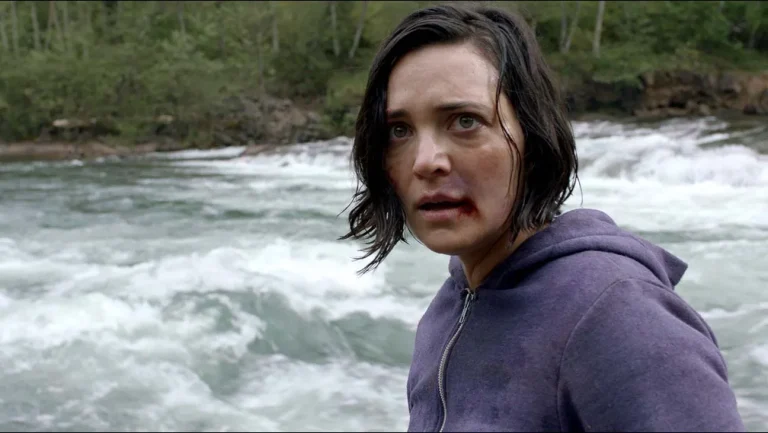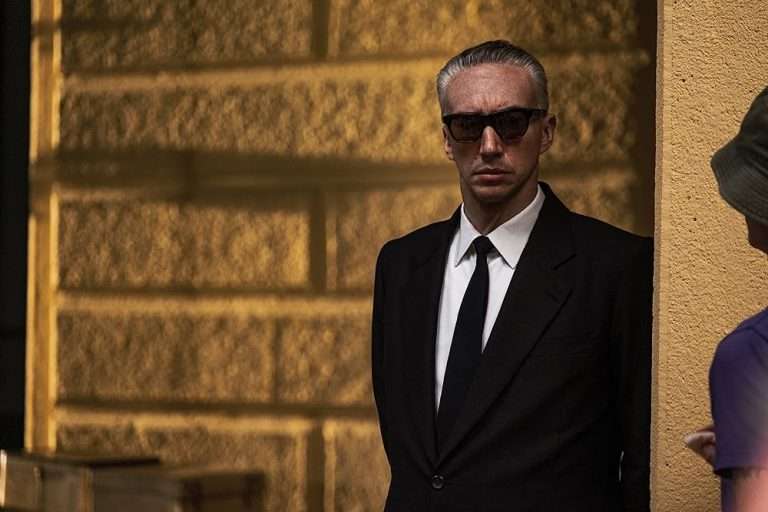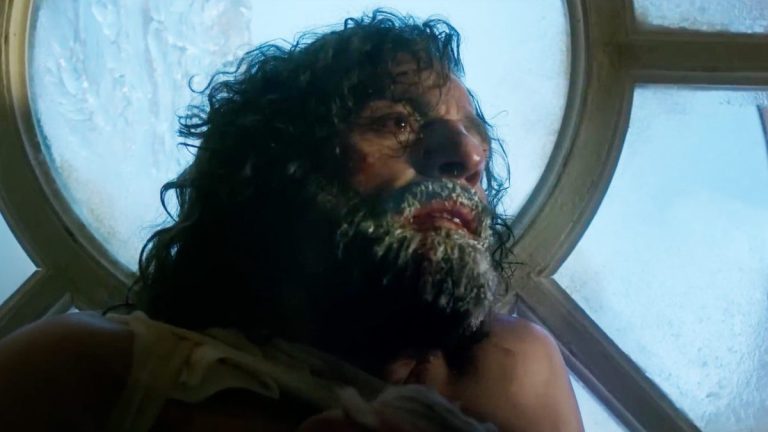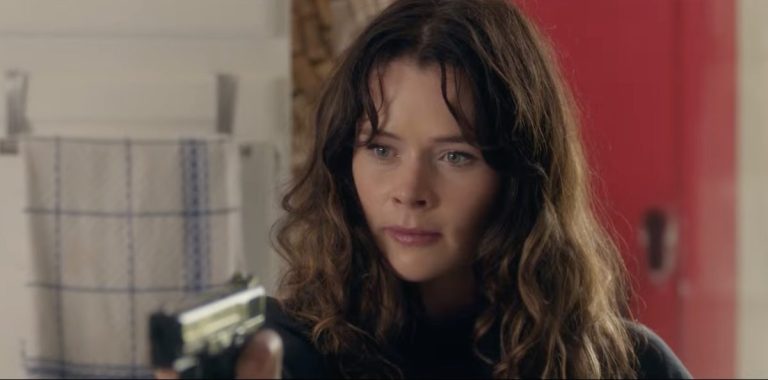I had a cousin with whom I shared an especially strong bond in 2022, when we were both looking forward to the lives that awaited us at graduation. But soon, it all spiraled into a cesspool of verbal clashes, emotional distance, and cold shoulders. What pushed me into months—and eventually years—of mental anxiety was the way he concealed it all behind a self-image of being the responsible, mature one: the person who listened to elders and blended in so nicely and amicably. It’s the kind of wound you don’t recover from easily.
Now, this dip into personal sappiness may seem unrelated, yet it mirrors the dark cesspool beneath James Watkins’s bleak and unsettling survival horror “Eden Lake.” An unnerving, all-out exploitative drama in the vein of genre films critiquing the hoodie culture of “Broken Britain,” it unleashes a graphic hunting spree without ever pausing to grant its audience easy gratification. Beneath that bloodied surface, however, it tells a story about the very kind of narrative control wielded by individuals to gain power and favour—and the bleak, scarring consequences of it.
In his terrifying and provocatively engaging directorial debut, Watkins does grapple with creative limitations and fault lines: a certain eagerness to dive into the visceral detail at times, and a hesitance to expand further, as though fearing his own narrative might collapse under its weight. Yet the way his chilling, genuinely haunting storytelling thrives within these self-imposed boundaries speaks volumes about the ambition.
Anchored by terrific performances from Kelly Reilly and Michael Fassbender, the film gestures toward the larger crisis of English adolescence. With the evolution of postmodern horror in recent years, and the wider conversation around Britain’s unsettling, often unattended youth—most potently reignited by the Stephen Graham series “Adolescence”—”Eden Lake” emerges as a film well worth revisiting. Here is my attempt to break it down for you.
Eden Lake (2008) Movie Plot Summary and Synopsis:
Jenny Greengrass and her partner, Steve Taylor, set off for a weekend at Eden Lake, a remote quarry in the English countryside. During the drive, Steve vents about rising antisocial behaviour among youths and criticizes the state of modern parenting.
What do Jenny and Steve discover the next morning?
Their idyllic escape quickly unravels when they encounter a gang of unruly teenagers led by their out-of-control leader, Brett. The following morning, the couple discovers their food supplies crawling with insects, immediately suspecting the teens. At a local restaurant, Steve describes the group to a waitress, who defensively insists her children would never harass anyone. Later, Steve sneaks into a house he believes belongs to the gang but narrowly escapes when Jon, a surly homeowner, returns.
What happens to the couple’s Jeep?
Back at the lake, they find their Jeep and belongings missing. Forced to head back to town on foot, they narrowly avoid being hit by Brett, who is now driving their stolen Jeep. When they confront the gang in the woods after dark, Steve threatens them, but the teenagers pull knives. In the scuffle, Brett’s dog is stabbed, sending him into a violent rage.
What happens to Steve?
The couple tries to flee but crashes the Jeep after the gang forces them off the road. With Steve trapped, Jenny runs as he is captured.
What does Steve give Jenny before she leaves?
At dawn, Jenny sees Steve tied to a rock with barbed wire. Brett orders each member of the gang to stab him so that none can escape blame. Paige, the only female in the group, records the torture on her phone. Jenny distracts the gang enough for Steve to break free, but she cannot tend to his mortal wounds. Before sending her away to find help, Steve gives her the engagement ring he had intended to propose with, which she slips on before running.
Eden Lake (2008) Movie Ending Explained
What happens to Adam?
Jenny stumbles upon Adam, a young boy she and Steve had earlier met collecting caterpillars. But Adam betrays her, alerting the gang. They capture her and tie her, along with Steve’s corpse, to a pile of wood. Brett forces Adam to set them alight while Paige films. Jenny manages to escape, infuriating Brett, who punishes Adam by forcing a burning tire around his neck, killing him. Later, Jenny accidentally kills Cooper, a reluctant younger gang member who had tried to help her. Finding Cooper’s body, Brett brutally beats another member of the gang to death. Terrified, Paige flees.
Where does Jenny awaken?
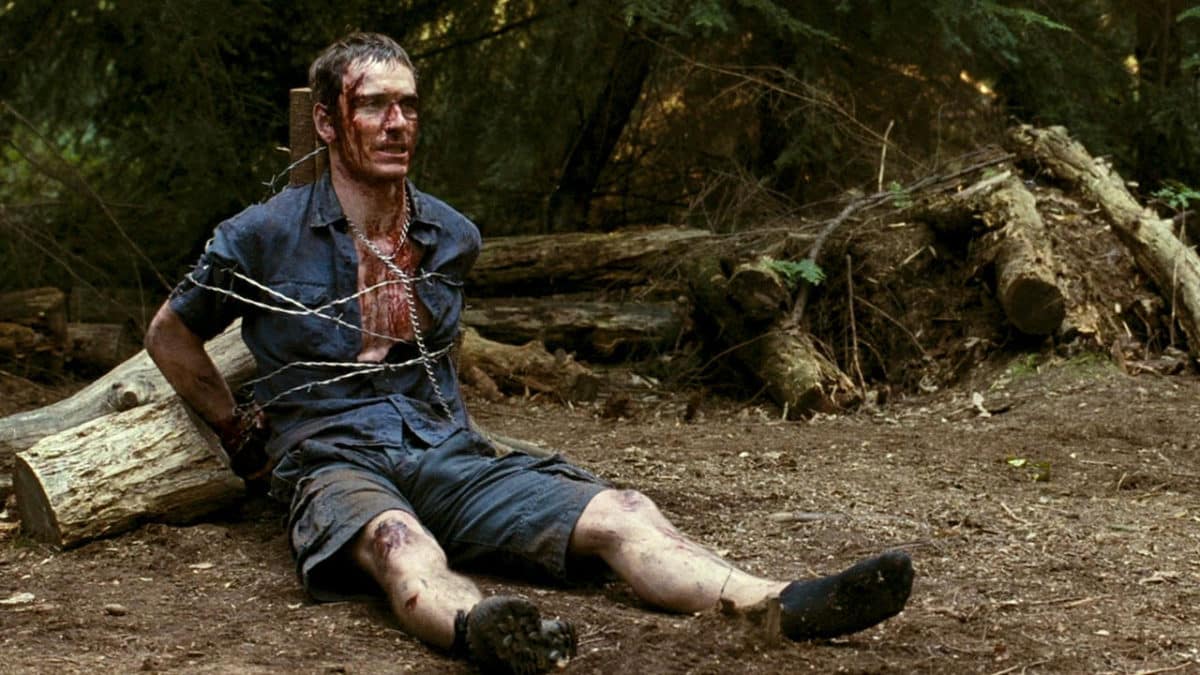
Jenny, desperate, runs onto the road and stops a driver, only to realize he is Cooper’s older brother. She hijacks his van, speeding away and running over Paige, killing her instantly. Finally reaching town, she crashes into a backyard party. Jenny awakens inside a house, comforted by a woman and Jon. But as the other parents gather, she realizes in horror that the dead gang members are their children—she is in Brett’s home. With nowhere to hide, Jenny locks herself in the bathroom until Jon kicks the door down.
Despite her pleas, Brett lies, claiming Jenny and Steve murdered his friends and his dog. Believing him, Jon and two other men beat her viciously. Upstairs, Brett deletes Paige’s recordings of the gang’s crimes, blocks out the sounds of Jenny’s screams, and gazes blankly into a mirror while wearing Steve’s sunglasses—proud, remorseless, and utterly unshaken.
Eden Lake (2008) Movie Themes Analysed:
The Collapse of Civility in Modern Society
The opening stretch of “Eden Lake” begins with Jenny casually remarking how her friend is off on a foreign holiday with her partner, while Steve is taking her to a quarry near his worksite. What follows might easily be mistaken as a city-versus-village tale—well-mannered versus feral—but the scale of violence upends this entirely.
Instead, the film offers a chilling meditation on how quickly social order disintegrates in the absence of empathy and accountability. This is man reduced to his most animal instincts, and the horror cuts so deep because of how recognizably human it is. That breakdown of civility is marked most viscerally when Jenny, in sheer desperation, climbs into a rancid dustbin just to stay alive.
It would also be convenient to simply hate the group of streetwise teens who hunt the couple down, their ruthlessness so sharp that sparing them feels like a threat in itself. And the film doesn’t pretend otherwise. But they are also stand-ins for a generation left to rot in the hands of toxic, abusive, and apathetic parenting. What’s absent isn’t just discipline—it’s a moral compass shaped by community care and emotional solidarity. That this moral vacuum erupts into unchecked cruelty feels horrifyingly inevitable.
The film’s unsentimental gaze towards Steve and Jenny’s otherwise warm romantic bubble also matters. In the early moments, the looming threat makes us anxious for their relationship’s survival. But once that illusion collapses, and survival itself becomes the only priority, the act of Jenny putting on an engagement ring before sprinting into the wild reads like a bitter, unfunny joke.
The Inescapable Class Divide
Perhaps the sharpest thematic spine in James Watkins’ screenplay is its sparse but biting commentary on class. It runs under the surface like a quiet pulse: Steve, a middle-class outsider, ventures into a deceptively serene pocket of rural England, only to crash into working-class resentment. His sense of moral superiority compels him to ‘discipline’ the local kids for their misconduct. But the children, shaped by generational neglect and performative independence, descend into something disturbingly violent.
This quickly mutates into a tribal standoff: us versus them takes hold and refuses to let go. Jon’s refusal to alert the police or help Jenny isn’t just anti-urban—it’s rooted in deep institutional distrust. The urban outsider is never one of them, and never will be. What emerges in place of civility is a brutal order where dominance, not dialogue, decides justice. It’s jungle law in its purest form—whoever holds the ground writes the rules.
Surveillance, Shame, and the Spectacle of Violence
The film stands as an early cinematic portrait of surveillance bleeding into ordinary life. Paige’s trembling but unwavering grip on her mobile camera is haunting—not because she’s documenting evil, but because she never considers dropping the device to stop it. Nearly twenty years later, this impulse—to film rather than intervene—has only calcified into a social pathology.
Here, the recording becomes more than memory; it becomes a tool of coercion. For Brett, the footage is a control mechanism. It ensnares the fearful into silence, implicates them through documentation, and grants him dominance through shame.
The forest becomes a theatre, and the phone becomes the director’s chair. That Brett erases the clips by the end isn’t just about covering tracks—it’s about hijacking the narrative. In a world where story beats fact, the one who holds the narrative holds immunity. Listening no longer matters when denial is just a deleted file away.



